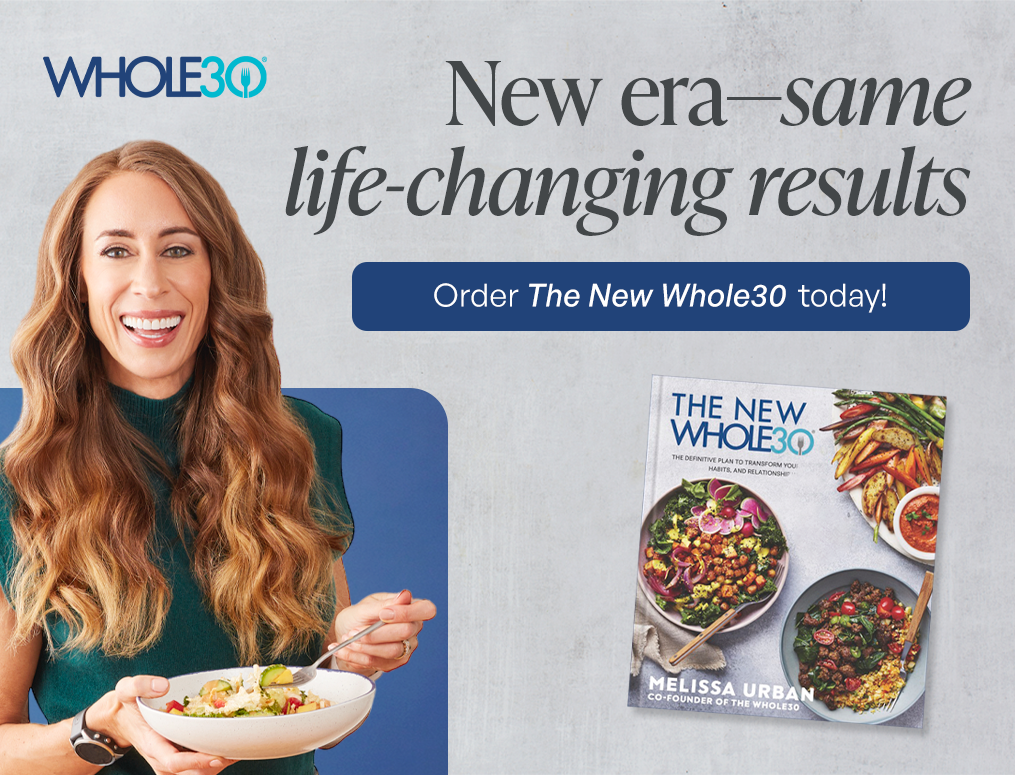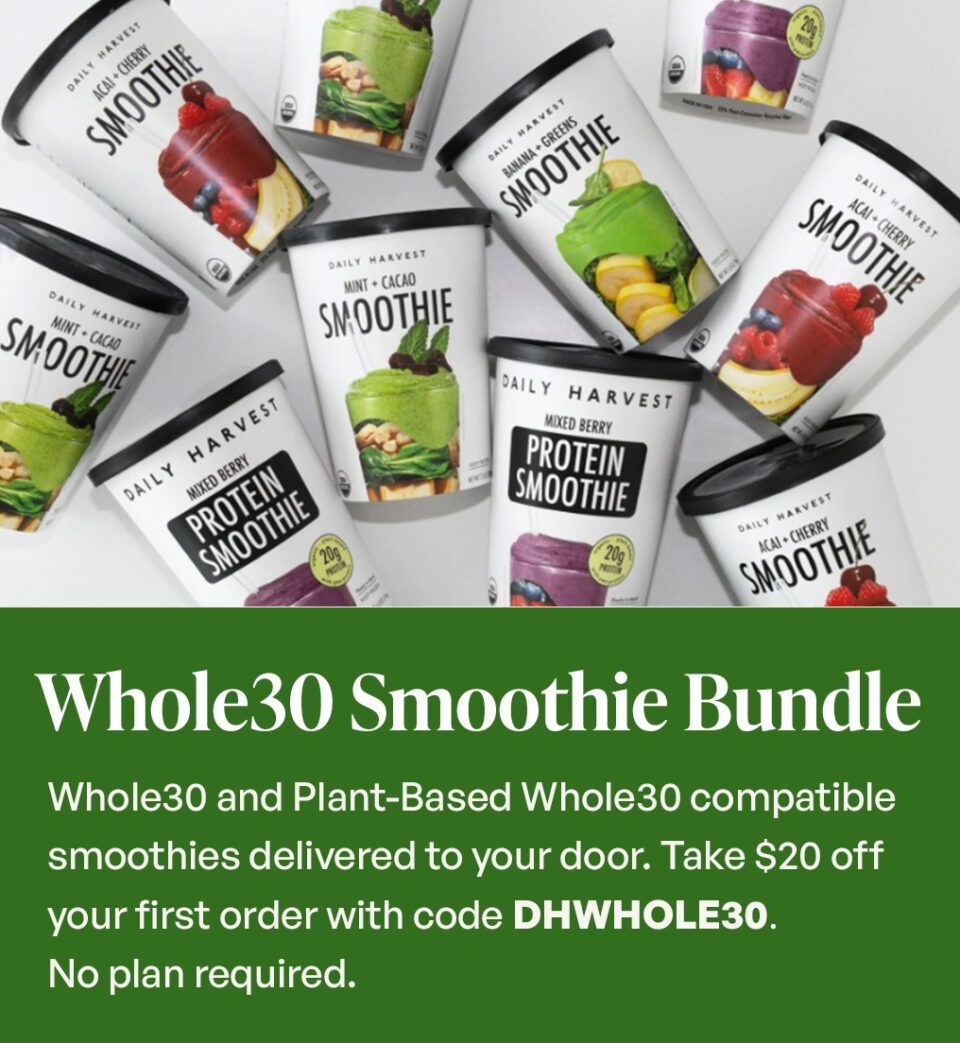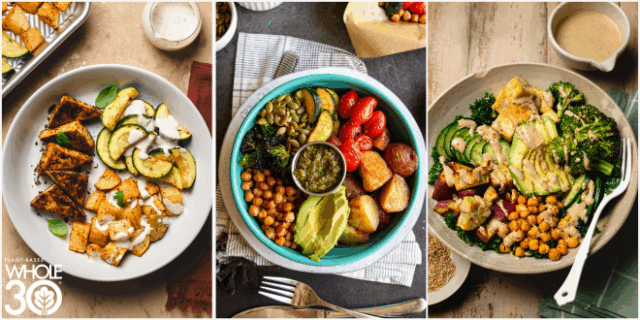I distinctly remember the first time I was introduced to the Impossible Burger. It was March 2019, and I was walking the floor at Expo West, the world’s largest trade show for natural and organic foods. I turned a corner and ran smack into a line of people at least 50 deep. “What the heck is this for?” I asked a passer-by. Sure, brands at Expo West were known for handing out food samples, but I’d never seen an actual line. “Oh, it’s for Impossible Burger,” the person said. “Their booth has been slammed all weekend.”
I sauntered past the line and picked up a display box to read the ingredients. Their product was plant-based, but I was surprised at how long the label was. It featured a highly processed form of soy protein, plus artificial colors, flavors, and preservatives. To me, this felt counterintuitive to the spirit and intention of eating plant-based. These new meat alternatives sure were popular—but does a “plant-based” label automatically make a product healthy?
Meet the “health halo”
Health halo: A cognitive bias that causes people to perceive products, brands, or ingredients as healthier than they actually are.
This isn’t the first time I’ve seen a health halo on a category of products. In the ‘90s and early 2000s, it was “low-fat” or “low-calorie.” (Remember those Oreo 100-calorie snack packs? Or Twinkies Light?) In the 2010’s it was “gluten-free” and “organic,” then a few years later it was “low-carb” or “keto.” Today, we’re seeing it with “plant-based,” but the cycle runs the same, regardless of the product category:
- Consumers desire a specific quality in food (less fat, no gluten, less pesticides, fewer carbs, plant-based ingredients).
- They find highly processed foods labeled as such, and assume (because of the labeling) that it’s automatically healthy.
- As consumers become more educated (and media scrutiny of these trendy products increases), the “health halo” around these claims fades.
- Consumers move away from these ultra-processed options and start looking for more whole-food ways to satisfy their dietary values.
This perfectly mimics the demand for plant-based meat alternatives like Impossible Burger or Beyond Burger. These offerings hit their peak of popularity in 2019, appealing to those who wanted to incorporate more plant-based foods into their diet. Today, however, public sentiment has changed tremendously. In June 2024, Food Navigator asked, “Has the plant-based trend peaked?” The answer is yes—but also definitely not.
Plant-based is dead, long live-plant-based
Late last year, I began seeing a slew of articles all discussing the precipitous decline in plant-based food sales, often focusing on meat alternatives. At first, it didn’t make much sense. We’ve seen a huge surge in the availability of plant-based “meats” in the marketplace, but sales in the U.S. have either stagnated or declined in recent years, depending on who you ask. At the same time, consumer interest in eating less meat is definitely on the rise, no matter where you look. What’s happening here?
It turns out, consumers do want to eat more plants, but don’t want the ultra-processed ingredients found in so many popular plant-based foods (especially meat alternatives). Food Navigator calls it the “plant-based backlash,” claiming consumer trust has been broken by these heavily processed foods marketed under a health halo. Today, 49% of consumers are concerned that their meat alternatives are too processed, and are now moving to whole-food products with real nutritional benefits.
So interest in a plant-based diet is alive and well (growing, even), but people want to eat real plants, not processed foods made from refined plant ingredients. Whole Foods agrees—their #1 trend for 2024 was “putting the ‘plant’ back in ‘plant-based’.” And for those who want to explore a plant-based diet or identify the plant-based whole foods that work best in their unique bodies, there is no better place to start than the Plant-Based Whole30.
Whole foods, Whole30
The Plant-Based Whole30 is our 100% vegan elimination and reintroduction program. Built on the proven foundation of the Original Whole30, the Plant-Based Whole30 allows participants to identify hidden food sensitivities while honoring their dietary values. You’ll find the program outlined in full in The New Whole30, including:
- Program rules and a detailed schedule for elimination and reintroduction, with the option to reintroduce animal protein and/or dairy products, if desired
- Helpful resources like a meal template and shopping list
- An extensive FAQ specific to the Plant-Based program
- More than 80 recipes* for plant-based breakfasts, lunches, dinners, side dishes, dressings, sauces, and snacks
*The book contains more than 50 Plant-Based recipes. When you pre-order The New Whole30, you’ll also gain access to 30 additional recipes in our exclusive cross-reference guide.
The Plant-Based Whole30 meal template is built on whole foods—minimally processed forms of soy (like tofu, tempeh, and edamame); beans and lentils; vegetables and fruit; and natural, plant-based fats. For those with additional protein needs, we also recommend single-ingredient, unsweetened plant-based protein powders to supplement your meals.
Of course, there is a role for plant-based convenience foods. Those who travel for work, have unpredictable or long schedules, or are on-the-go need portable, convenient, nutrient-dense options. The New Whole30 prioritizes minimally processed snacks (like lupini beans, edamame, dried fruit and nut bars, and olives) and shares recipes to make your own smoothies, chia pudding, kale chips, and veggie dips. And while there are a few Whole30 Approved plant-based meat alternatives, you won’t find any artificial ingredients, flavorings, or preservatives inside:
Whole30 Approved Abbot’s “Chorizo”: Filtered Water, Pea Protein, Tomato Paste, Extra Virgin Olive Oil, Red Wine Vinegar, Onion Powder, Chili Powder (Chili Pepper, Cumin, Salt, Oregano, Garlic, Coriander), Spanish Smoked Paprika, Sea Salt, Garlic Powder, Ground Cumin, Vinegar, Black Pepper, Oregano, Chipotle Peppers.
We agree that the health halo surrounding the term “plant-based” is often ill-placed. You do have to read your labels, even if the product in question looks (and claims to be) healthy. Still, there are tremendous benefits to eating with a more plant-forward approach, or including more plants in your diet.
Pre-order a copy of The New Whole30 today. Try the Plant-Based Whole30, and rest assured knowing our whole-foods based, nutrient-dense, dietitian-created approach will stand the test of time, no matter what the trend. (Who needs a halo if it’s actually health-promoting?)


















